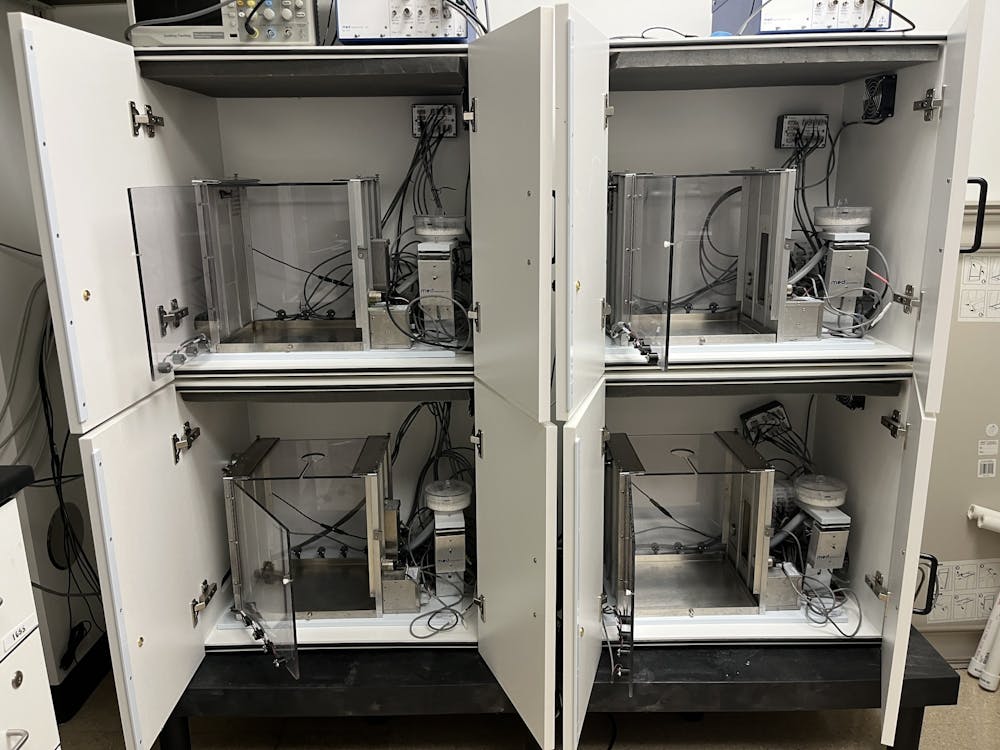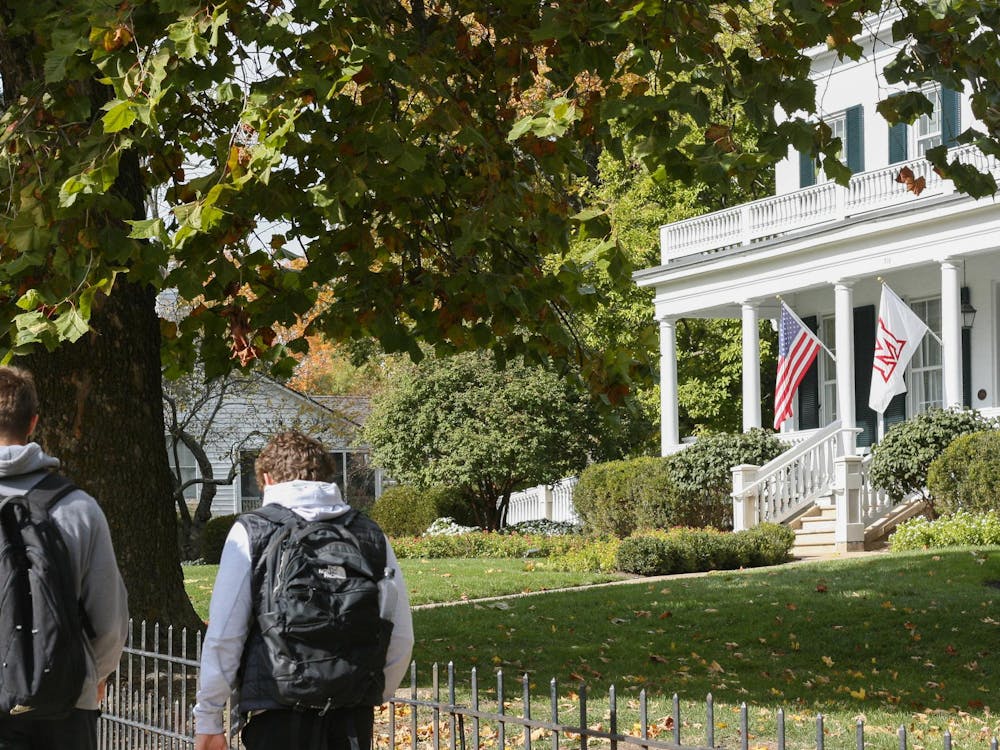When thinking about the concept of a “rat casino,” tiny slot machines and poker chips may come to mind.
But The Institute for Responsible Gaming, Lotteries and Sport’s experiments at Miami University involve none of these aspects. Instead, the researchers are focusing on the psychological effects of gambling through rats.
Alexia Zylko, a biology, premedical studies and neuroscience triple major, describes the operant boxes as a way for her and her associates to observe how rats handle decision making in a casino-like environment.
“The projects involve tasks where the rats have to make a choice between a risky reward or a more certain reward that's lower. That's the gambling aspect of it,” Zylko said.
The operant boxes also contain levers and lights, which work to simulate the exciting and chaotic nature of a real casino within the box. This works to challenge the rat’s decision making.
The risk-reward decision making comes when the rats choose which lever they feed from: one lever will consistently feed the rats one sugar pellet, and the other feeds the rats three sugar pellets, but the probability of that reward happening decreases over time.
The other projects within the lab are conducted by Brianna Roberts, research coordinator for the McMurray lab, where the rats are fed psilocybin, also known as magic mushrooms. After the rats are fed this drug, their reaction times when making decisions are observed.
“The sum of the receptors that psilocybin works on are in areas of the brain that are really heavily implicated in decision making,” Roberts said.
The aim of this research is to provide insight into various mental health disorders, including depression and gambling.
“Our lab is mainly focused on psilocybin right now as an antidepressant for potential therapeutic efficacy,” Roberts said.
The Institute focuses on research supporting responsible gambling. Matthew McMurray, assistant professor in the department of psychology and founding faculty fellow to the institute, explained that the institute isn’t looking to get rid of gambling; it is looking to teach people how to gamble responsibly.
“Gambling is an embedded part of our culture and has been for all of human history,” McMurray said. “Our goal is to hold gambling companies accountable for people gambling responsibly as well as inform regulators and other stakeholders about the best way to protect gamblers and consumers to keep bad things from happening.”
Enjoy what you're reading?
Signup for our newsletter
McMurray stressed the importance of the institute is about more than just addiction; it is about setting up a responsible space for legal gambling to occur. The institute’s work focuses on what drives bad decision making before it occurs.
This research will then be used to not only treat those with gambling addictions but also find solutions on how to prevent gambling addictions before they occur.
“My lab has been working with PsyBio Therapeutics for the last few years to look at how some potential new psychedelic compounds may be used to treat disordered gambling,” McMurray said.
So, why rats?
The rats are used for these experiments because there are certain correlations between their brains and human brains. Rats are also curious and smart by nature, making them the perfect test subjects for manipulatable projects.
McMurray said he hopes this research will be used outside the university.
“This research is done to provide information for future studies going forward that would look at more of actual clinical models with humans,” McMurray said.
The Institute for Responsible Gaming, Lotteries and Sport’s mission is to “research, educate, train, and outreach.” For more information, visit the institute’s website.




